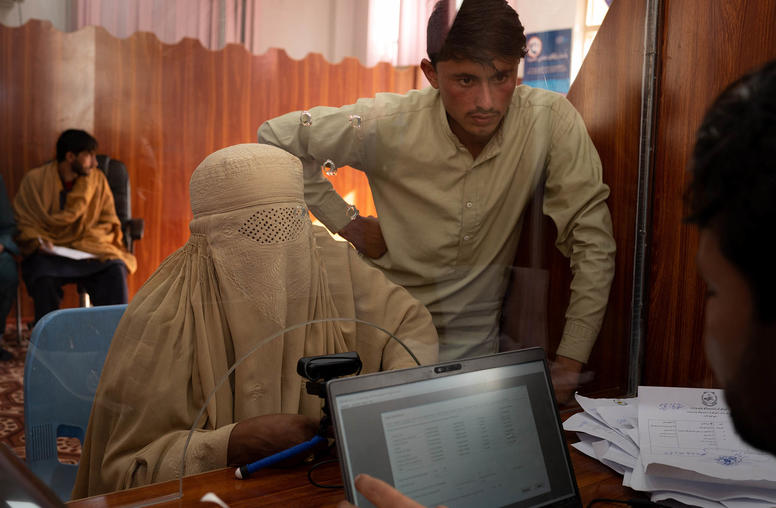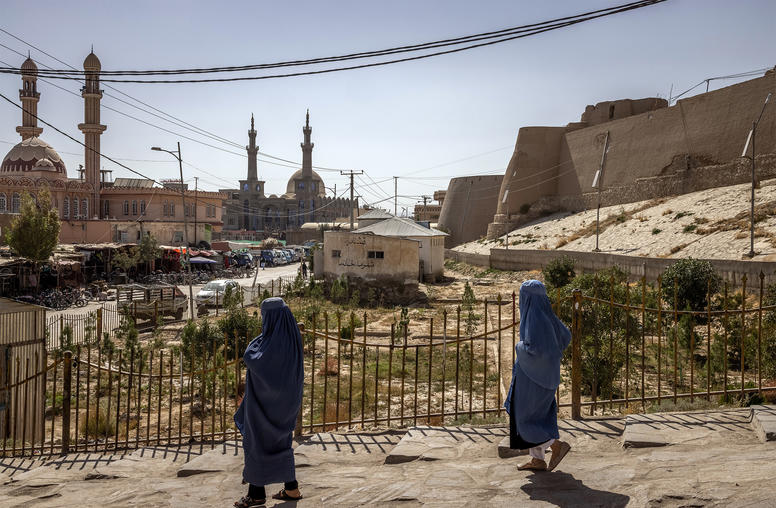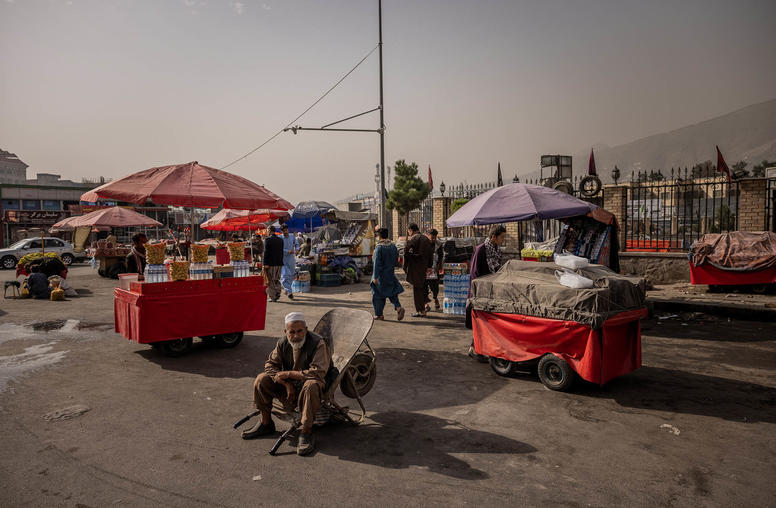Question And Answer
Publications
Articles, publications, books, tools and multimedia features from the U.S. Institute of Peace provide the latest news, analysis, research findings, practitioner guides and reports, all related to the conflict zones and issues that are at the center of the Institute’s work to prevent and reduce violent conflict.

The Taliban’s Attacks on Diversity Undermine Afghanistan’s Stability
Each year, the U.N. International Day of Living Together in Peace reminds us that true, sustainable peace is achieved not simply by eliminating war, but rather by building tolerance, inclusion, understanding and solidarity among and between communities.

Senior Study Group on Counterterrorism in Afghanistan and Pakistan: Final Report
When announcing the US withdrawal from Afghanistan in April 2021, President Joe Biden identified counterterrorism in Afghanistan and Pakistan as an enduring and critical US national security interest. This priority became even more pronounced after the Taliban’s return to power in August 2021, the discovery of al-Qaeda’s leader Ayman al-Zawahiri in Kabul less than a year later, and the increasing threat of the Islamic State of Khorasan (ISIS-K) from Afghanistan. However, owing to the escalating pressures of strategic competition with China and Russia, counterterrorism has significantly dropped in importance in the policy agenda.

Why Counterterrorism in Afghanistan and Pakistan Still Matters
From wars in Ukraine and the Middle East to rising tensions in the South China Sea, there is no shortage of crises to occupy the time and attention of U.S. policymakers. But three years after the U.S. withdrawal from Afghanistan, the threat of terrorism emanating from South Asia remains strong and policymakers need to be more vigilant. Indeed, at the end of March, an Afghanistan-based affiliate of ISIS launched a devastating attack outside of Moscow, killing over 140 people.

Despite Daunting Economic Headwinds, Afghan Private Sector Shows Signs of Life
Three years after the Taliban took control of Afghanistan, the country’s economy remains in a dismal state marked by depression-level price deflation, high unemployment and a collapse of GDP. Still, while the bad news for Afghans is well known, less visible are some green shoots in the country’s private sector that, if properly encouraged, could mitigate the situation. These range from small business activity to Taliban plans for major projects to the potential for an uptick in investment. Clearly nothing in those developments can stimulate a strong economic revival.

Asfandyar Mir on Why ISIS-K Attacked Moscow
ISIS-K’s recent attack on the Russian capital was, in part, intended to assert the organization’s growing capacity to inflict terror beyond its home base of Afghanistan. “By reaching Moscow, ISIS-K is trying to signal it has the geographic reach to hit anywhere in the world,” says USIP’s Asfandyar Mir.

Moscow Concert Hall Attack Will Have Far-Reaching Impact
On Friday, terrorists attacked the Crocus City Hall outside Moscow leaving 140 people dead and 80 others critically wounded. Soon after, the Islamic State claimed responsibility for the attack. The terrorist group, which is headquartered in Iraq and Syria, has several branches, including in South and Central Asia. Press reports suggest the U.S. government believes the Afghanistan-based affiliate of the Islamic State, ISIS-Khorasan (ISIS-K), was behind the attack. The Biden administration has publicly noted that it had warned the Russian government of the terrorism threat in early March in line with the procedure of “Duty to Warn.”

The Challenges Facing Afghans with Disabilities
In Afghanistan, obtaining accurate data on the number of persons with disabilities — including gender-disaggregated information — has always been a challenging endeavor. But based on the data we do have, it’s clear that more than four decades of violent conflict have left a considerable portion of the Afghan population grappling with various forms of disabilities, both war-related and otherwise. And the pervasive lack of protective mechanisms, social awareness and empathy surrounding disability continue to pose formidable challenges for individuals with disabilities, with women being disproportionately affected.

What to Expect from the Doha Conference on Afghanistan
On February 18-19, United Nations Secretary-General Antonio Guterres will convene a meeting on Afghanistan in Doha to discuss the ongoing humanitarian and human rights crises and the recent report on a way forward by U.N. Special Coordinator for Afghanistan Feridun Sinirlioğlu. Special envoys from U.N. member states and international organizations will attend; representatives from Afghan civil society, women’s groups and Taliban officials have also been invited. The conference is a critical, high-level opportunity for donors and the region to chart next steps on how to improve the situation in Afghanistan and engage with the Taliban regime.

How the Taliban Enables Violence Against Women
In just 28 months, the Taliban have dismantled Afghan women’s and girls’ rights — imposing draconian restrictions regarding their education, employment and freedom of movement. Any perceived violation of these oppressive policies is often met with harassment, intimidation, and verbal and physical abuse orchestrated by the Taliban’s Ministry of Vice and Virtue. And when women are detained by authorities, they have been subjected to cruel treatment, including torture.

Afghanistan’s Economy Once Again Nears the Precipice
More than two years into Taliban rule, Afghanistan remains one of the poorest countries in the world with some of the highest humanitarian needs. The situation has shown some signs of stabilizing over the last year — but many Afghan households are still struggling to procure basic needs, and many women have been driven from the workforce altogether. Unfortunately, financial troubles loom ahead, and the already beleaguered Afghan economy is now projected to decline. Combined with population growth and the influx of thousands of Afghans forced to return from neighboring Pakistan, this is a recipe for increased humanitarian need over the longer term in the absence of major structural and political reforms.